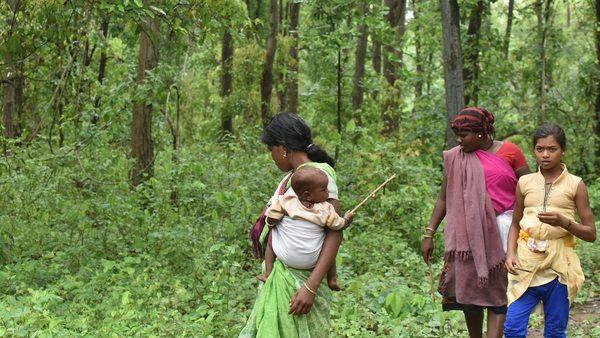States Admit Due Process Not Followed While Investigating FRA Claims

Representational Image. Image Courtesy: Hindustan Times
Eight states including Assam, Bihar, Chhattisgarh. Jharkhand, Karnataka, Maharashtra, Tamil Nadu and Uttarakhand have told the Supreme Court in their affidavits that due process was followed in the investigation of the FRA claims.
About 25 states and union territories have so far filed their affidavits in response to the SC direction. Eleven of these states have undertaken review of the rejected claims. At least 10 states have also asked for an extension to complete the review process of FRA claims. This includes states like Jharkhand, which has sought time till July 2020; Karnataka wants another 18 months and West Bengal wants extension till December end this year.
The admission by the states is crucial as the rejection of these claims can lead to the eviction of over one million Forest Dwelling Scheduled Tribes (FDSTs) and Other Traditional Forest Dwellers (OTFDs). The Supreme Court order in February was passed by a three-judge bench comprising Justices Navin Sinha, Arun Mishra, and Indira Banerjee. The order, which was made public on February 20, directed the state governments to ensure eviction of around 11 lakh people from forest areas spread across 17 states, latest by July 27. In an effort to control the damage done by the order, the central government had filed a plea before the apex court to modify it, following which the Supreme Court had put a stay on the order on February 28, permitting states to temporarily withhold the eviction of the tribal families and investigate claims. In multiple cases, the states have reportedly rejected the claims without properly investigating them.
The Odisha government, after hearing several appeals, has rejected more than 10,000 claims under the Scheduled Tribes and Other Traditional Forest Dwellers (Recognition of Forest Rights) Act, 2006. In many cases, arbitrary processes are being followed where the claimants are not being allowed to show proof or file appeals or even ask questions. Similarly, it has been noted in Rajasthan, where thousands of files containing FRA claims have gone missing. Around 48% of the total claims of the tribals have been rejected in the state. This data submitted by the states is now with the apex court which will decide the fate of these “encroachers”.
The FRA states that the reason for the rejection of claims is to be communicated in writing to the claimant, following which the claimant can appeal against the rejection with the Gram Sabha in 60 days. However, in many states, the claimants are being orally told that their land is being leased to somebody else. In many notices being sent out to the tribals, the clause that indicates that an appeal can be filed in 60 days has been struck out. In other instances, the notices being sent out do not have an issue date on them.
Speaking to NewsClick, Madhuri K, an activist said, “Amid the rampant rejection of the claims, it becomes clear that right from the beginning, there are attempts to scuttle the FRA and this acceptance by the states exposes the lack of will and the hostility towards the implementation of the act. We are welcoming that this admission has come from the states. What is now required is for states and the central government to be on a war footing to implement the act.”
The admission of the states comes in the light of the pending Supreme Court hearing which was scheduled to take place on July 24 after the states had filed their affidavits regarding the claims of the tribals.
Also read: Ahead of SC Hearing on FRA, State Govts Reject Tribal Claims Without Examination
Get the latest reports & analysis with people's perspective on Protests, movements & deep analytical videos, discussions of the current affairs in your Telegram app. Subscribe to NewsClick's Telegram channel & get Real-Time updates on stories, as they get published on our website.
























